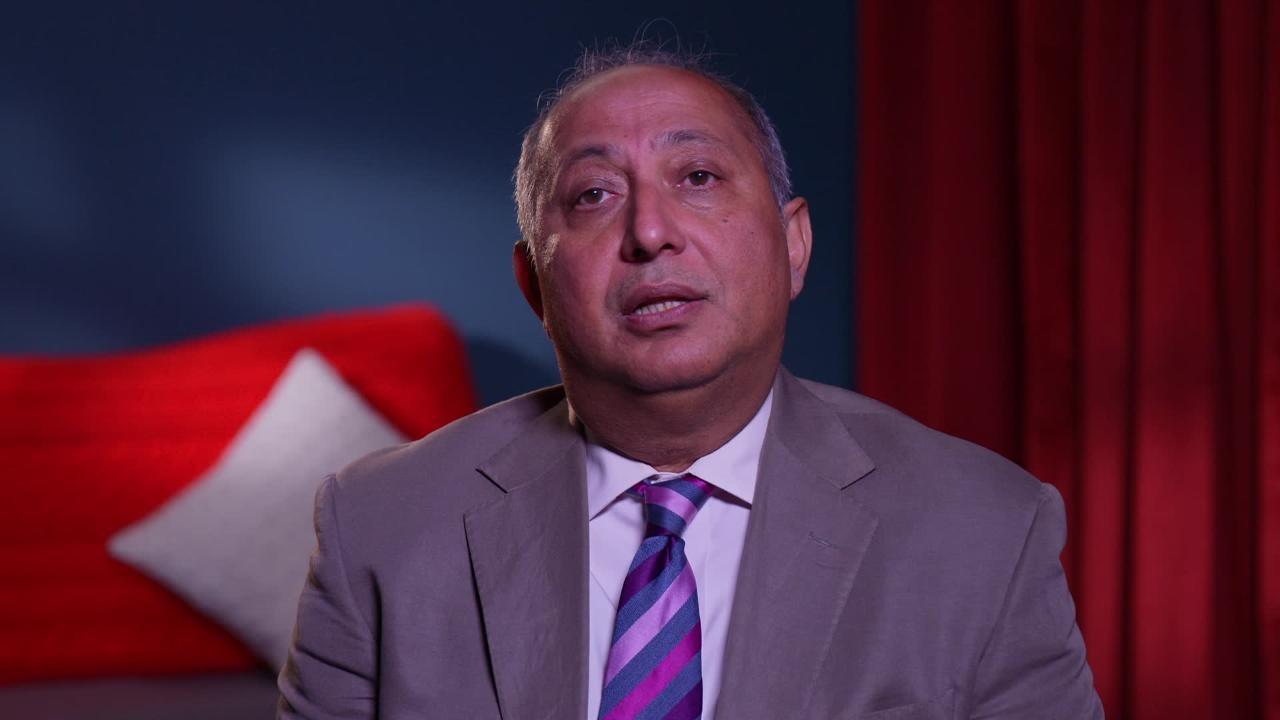
Video: Why do people get depressed?
Peer reviewed by Dr Sarah Jarvis MBE, FRCGPLast updated by Prof Swaran Singh, FRCPsychLast updated 4 Dec 2017
Meets Patient’s editorial guidelines
- DownloadDownload
- Share
- Language
- Discussion
With a condition as complicated as depression, two cases are rarely the same and the underlying reasons why you or those close to you are affected may need professional support to uncover. We may not be able to offer all the answers, but our experts have tackled some of the common questions that arise.
In this article:
Playlist: Depression Q&A
6 videos
Why do people get depressed?
Prof Swaran Singh, FRCPsych
Why do people get depressed?
Prof. Swaran Singh, FRCPsych

Is depression a form of mental illness?
Prof. Swaran Singh, FRCPsych

What can cause a low mood?
Prof. Swaran Singh, FRCPsych

Does social anxiety lead to depression?
Prof. Swaran Singh, FRCPsych

What is seasonal affective disorder?
Prof. Swaran Singh, FRCPsych

What are treatments for depression?
Prof. Swaran Singh, FRCPsych
Continue reading below
Why do people get depressed?
Prof. Swaran Singh
Low mood is a normal human response to setbacks, failures, frustrations, rejections, and things not going our own way.
In most cases, this low mood passes. Depression is a more serious condition, where you have a sustained period of low mood that does not shift even when your circumstances change and you can no longer find pleasure. It is usually associated with other symptoms like disturbances of sleep, appetite, concentration and negative thoughts.
Depression can occur because of stressful life events, such as a bereavement, or a breakup or moving home or a loss of a job. But in some cases people can become depressed for no apparent reason. This is more likely to happen to people who had depression episodes in the past, and sometimes it may be because of a genetic vulnerability.
Regardless of the causes of depression, treatments are available and treatments are equally effective, whether your depression has risen out of nowhere or it follows a stressful life event.
Is depression a form of mental illness?
Prof. Swaran Singh
Severe depression is certainly a form of mental illness. There are milder forms of depression and a very very mild form; they can be sometimes be difficult to differentiate from low mood in response to stressful life events.
But once the depression is intense, severe or lasting a long time, it is best to consider it a mental disorder and get appropriate treatment.
Continue reading below
What causes a low mood?
Prof. Swaran Singh
Our mood is a reflection of our inner state of well-being and how we respond to things around us. Low mood is usually a response to negative events or thoughts; events around us or thoughts inside us.
Low mood can follow from bad events, a loss event, bereavement, a house change, a stressful event; and sometimes low mood can follow from how we are feeling inside about us ourselves - if we feel bad about ourselves, we feel guilty, we feel remorseful, and we feel unloved. So low mood is caused by how we are feeling about ourselves and about our place in the world.
Does social anxiety lead to depression?
Prof. Swaran Singh
Social anxiety, like all other forms of anxiety can lead to depression. Anxiety disorders tend to make people withdraw. They withdraw from social situations, they withdraw from situations that make them anxious, they withdraw because they are struggling to cope, and sometimes as a result of that, they can start feeling low.
So depression can follow on from social anxiety, as it can follow on from other forms of anxiety.
Continue reading below
What is seasonal affective disorder?
Prof. Swaran Singh
Seasonal affective disorder is a mood disorder that occurs at particular times of the year. The commonest form is that in the northern hemisphere some people will start feeling depressed between November and March, the winter months. They have the clinical presentation of a depressive illness with low mood, irritability, hopelessness, fatigue, sleep and appetite disturbances, and negative thoughts and in severe cases suicidal ideas.
Although we don’t fully understand why some people get seasonal affective disorder. We suspect it might be due to the exposure to light, the number of hours we are exposed to lights in the day, so the long winter nights, may be causing low mood. Some people think it’s to do with the disturbance of our internal body clock and some people think it’s because of the hormone melatonin which is released in response to dark.
Regardless of the cause, the treatment of seasonal affective disorder is talking therapies, sometimes in combination with medication and for some people light boxes. The evidence for light boxes is mixed; however, the risks are very low and many people who have used them swear by them. It seems to work for them. So if you have a seasonal affective disorder, seek help. One of these treatments will work for you.
What are treatments for depression?
Prof. Swaran Singh
There is a whole range of treatment for depression, and which one you use depends on a number of factors, but most importantly how severe the condition is. So far very mild and minor forms of depression, self-help books or computerised psychotherapies have been shown to be effective. In more severe depression psychotherapies, talking therapies are very effective particularly by cognitive behaviour therapy.
In even more severe depression where the person has lost the motivation even to engage in psychotherapy, we will sometimes use medication to lift the mood enough for them to then be able to engage in psychotherapy. And in very rare cases with very severe depression which has not responded to other forms of treatment, we may have to use electroconvulsive therapy (ECT).
But, by and large, a combination of talking therapies and medication is enough to treat most patients with depression.
Patient picks for Depression

Mental health
Are men or women less likely to get help for depression?
When it comes to depression – and getting help for it – there are often key differences between men and women.
by Danny Chadburn

Mental health
Do holidays help or hinder depression?
A holiday should be a welcome break from everyday life, 'but in reality holidays can be stressful, particularly before going away as there's a lot to plan and organise,' says psychologist Emma Kenny.
by Danny Chadburn
Article history
The information on this page is peer reviewed by qualified clinicians.
4 Dec 2017 | Latest version

Ask, share, connect.
Browse discussions, ask questions, and share experiences across hundreds of health topics.

Feeling unwell?
Assess your symptoms online for free
Sign up to the Patient newsletter
Your weekly dose of clear, trustworthy health advice - written to help you feel informed, confident and in control.
By subscribing you accept our Privacy Policy. You can unsubscribe at any time. We never sell your data.